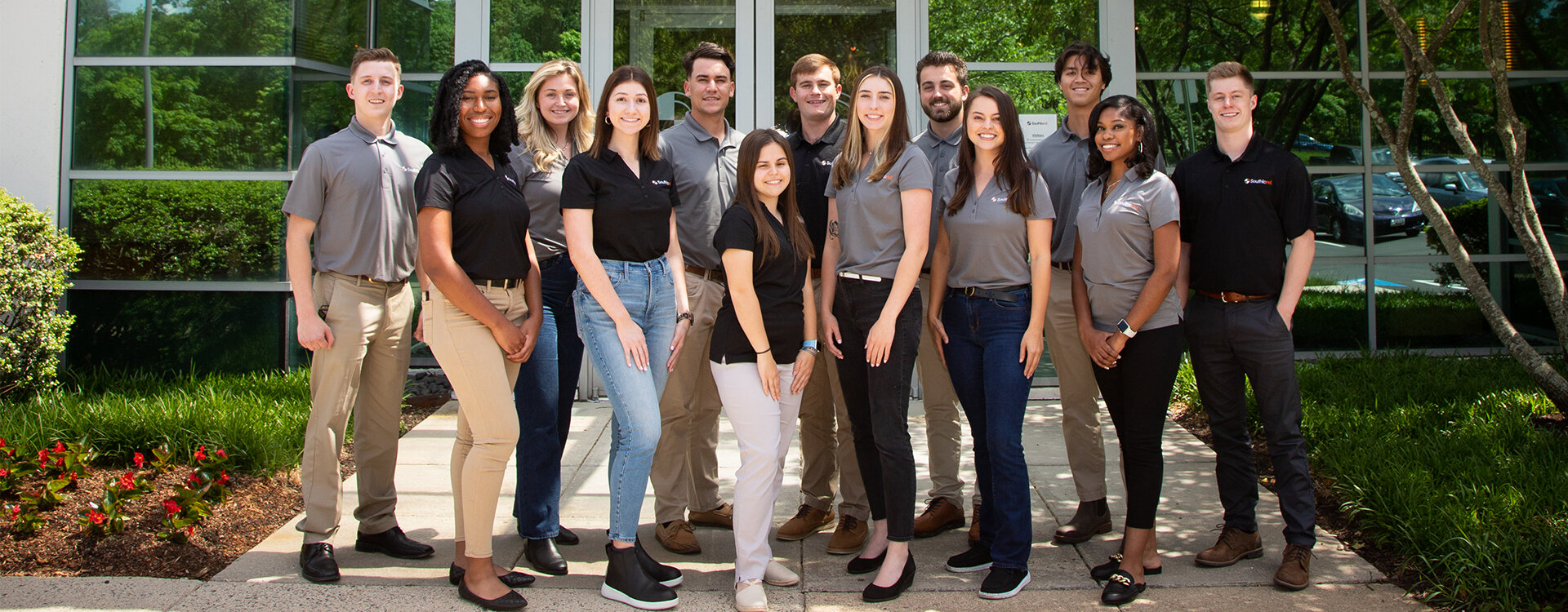
As you walk through the doors of the company you worked so hard to get a summer internship with, the first day of your internship could be the start of so much more. Internships are a great opportunity to gain real-world experience and make a positive impact on your future career if you take advantage of the resources offered to you.
So, how does an intern become a valued team member and take advantage of available resources? We asked Southland employees how interns can make the most out of their summer internship to build their network and gain valuable experience.
What are some traits that make interns stand out as potential full-time hires?
From honesty to optimism, initiative, and enthusiasm, many of the traits that successful interns have include being responsible with a willingness to explore and learn.
Katie Speak, Human Resources Business Partner, shared, "Honesty with yourself and others. No one is expected to know everything, especially as an intern, so ask questions, stay true to your word, and if you're hitting your capacity, speak up."
It's also important that interns show they are excited to learn. Brad Steenhoek, Human Resources Business Partner, highlighted the importance of inquisitiveness, "Those who are constantly looking for new ways to improve themselves and contribute more to the company and are interested in learning about everything they encounter."
In addition to timeliness and accountability, Joel Schmidt, Project Engineer, shared, "Initiative is imperative because when I work with an intern who is thirsty to learn and make a difference, I don't care what they do and don't know — I know that they are going to quickly be a meaningful part of the team."
How can interns make an impact on the leadership team?
Relationships are the foundation of any business. Simply going out of your way to introduce yourself to the leadership team and people across the organization can go a long way, and you never know how the people you meet can help you in the future.
Andy Rhodes, Business Development Lead, shared, "Engage with the leadership team by showing initiative and setting up meetings, even just to introduce yourself or catch up. Go outside of your department and speak to the people you wouldn't normally work with day to day. Doing this will help you get involved with the company and build your network."
Along with relationship-building, participating in conversations is a great way to get involved with the leadership team and provide new perspectives to improve the business. Tommy Holt, Project Engineer, shared, "Interns can make a lasting impact on the leadership in the field and office by being present, interacting, and asking questions. Interns have the amazing opportunity to bring a new perspective to those who have been doing things the same way for a while. By asking questions and being involved, they may look at things in a new light that will help improve a given process or the way leadership works."
Besides technical experience, which professional skills would you consider to be the most important for an intern to master?
A willingness to learn and actively listening shows that an intern understands the significance of their internship to the company. Your work is just as impactful as anyone else's, and showing initiative to fully understand the task at hand is important in creating a successful reputation and career.
Communication skills are essential, as you will need to work with many different people across the industry, and everyone has different styles of communication. Nicholas Russell, Project Engineer, shared, "This business is a people business, no one can get anything done without good relationships and honest communication both internally and externally. The greatest skill you can master is communication."
Joel Schmidt, Project Engineer, highlighted how even if you don't have extensive knowledge of a subject, your communication skills will help you succeed. "The ability to communicate effectively will get you very far in this industry, even if you have limited knowledge of the work. No matter if you are a "behind-the-scenes" type of personality, or a "in-the-spotlight" presenter, knowing your strengths/weaknesses in your communication styles and how that affects the people around you is always key to mastering your relationships with your team, trade partners, engineers, and clients."
What is the one thing that someone said to you when you first started your career that you still apply or use in your role today?
Starting a career, you will be given multiple pieces of advice by experienced people in your field. Our team wanted to share something that was shared with them when they started that was meaningful enough to still apply to their job today.
Betty Ribble, Human Resources Generalist, remembered when someone said to her, "It is truly what you make of it. All jobs and careers have their good and bad components. Realizing that the most important aspect is about your involvement and understanding of the organization you're in and how you really fit into that part."
Although it might be a simple answer, the best advice is sometimes the most straightforward. Tommy Holt, Project Engineer, shared, "I was always told 'Don't be afraid to ask questions.' As simple and commonly said, this statement is something I still use today. There is so much to learn in the industry we work in, and you cannot be afraid to ask questions. Being honest and admitting when you don't know something and then taking the opportunity to learn about it will make you a more genuine and approachable leader."
The best way to succeed can be as simple as being curious and showing a willingness to learn. Joel Schmidt, Project Engineer, shared "As long as you can walk away from the jobsite every day knowing that you learned something, you will succeed in this industry."
Internships are not only opportunities to kick-start your career, but can be valuable learning experiences where you can leverage your resources to build your network and set yourself up for the future.
This article was written by a Southland Industries team member.




